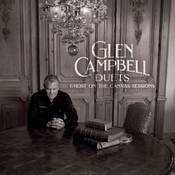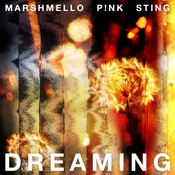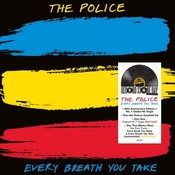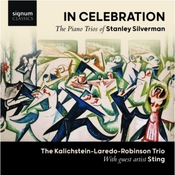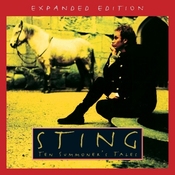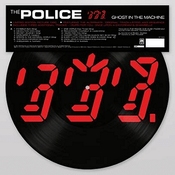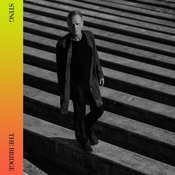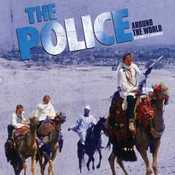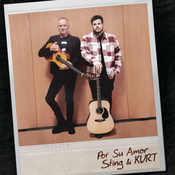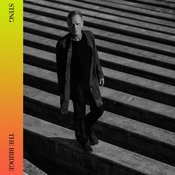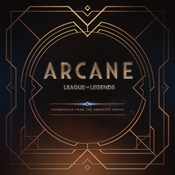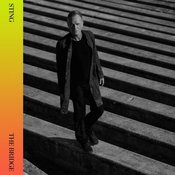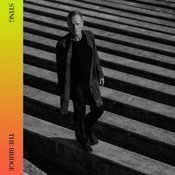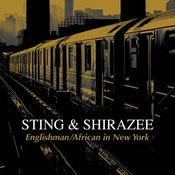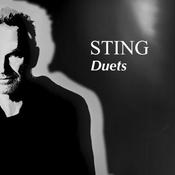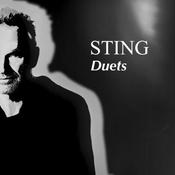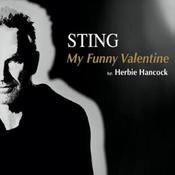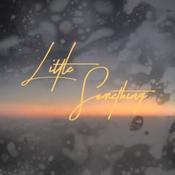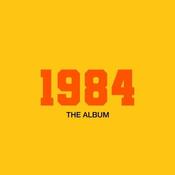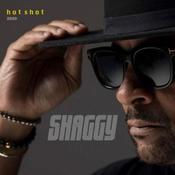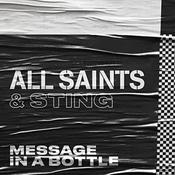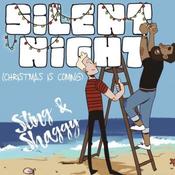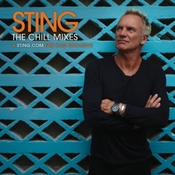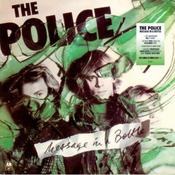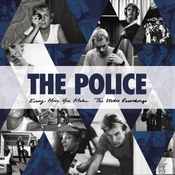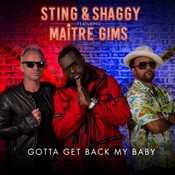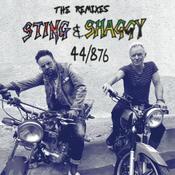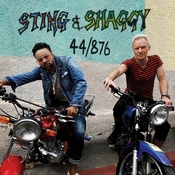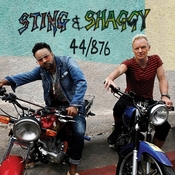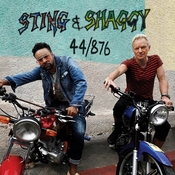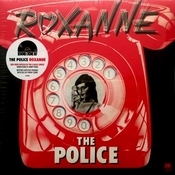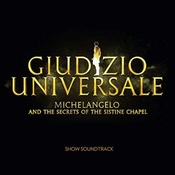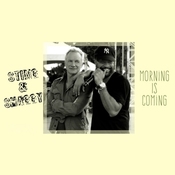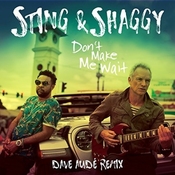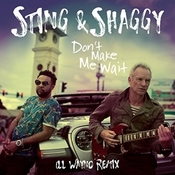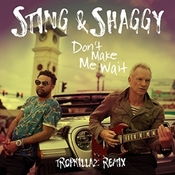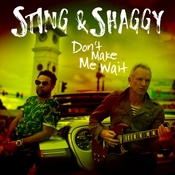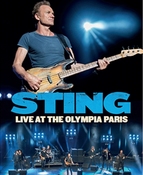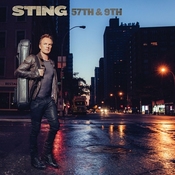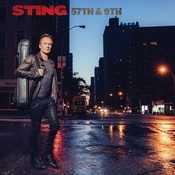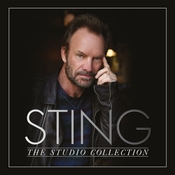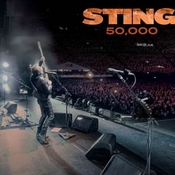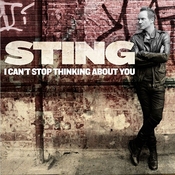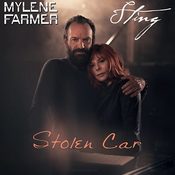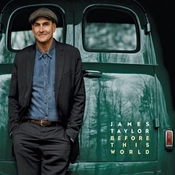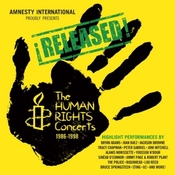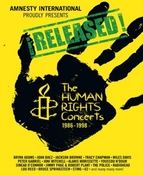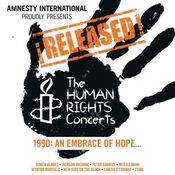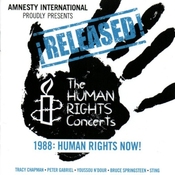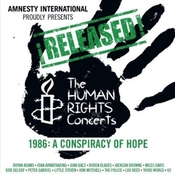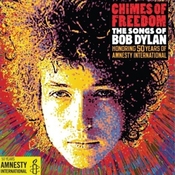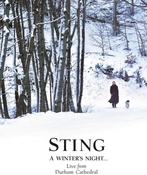Police Academy

Soundbites
The missing link between Gong the Police - Strontium 90 played punkish rock to audiences with tea-cosies on their heads: The first time I heard of Strontium 90 was when some mate skived off school to see Gong play a farewell concert in Paris: It was 28th May 1977, and punk was kicking in, but not enough to devour our affection for Gong, one of the few bands to retain a modicum of late 60s lunacy in an otherwise leaden mid-70s rock landscape.
Twenty years on, and Strontium 90 mainman and one-time Gong bassist Mike Howlett has decided it's time the rest of the world learnt about his little-known combo. But why The group got no further than a handful of gigs and a bagful of rejected demo tapes. Mike Howlett became an in-house producer for Virgin, bringing the best out of the label's new wave and punk acts, but he's hardly reason to sift through some dirty musical washing.
There is, of course, a simple answer. The title of the new CD, which contains some previously unheard Strontium 90 demos and live tracks, is "Police Academy". Images of policemen adorn the front cover. So do the names of the band - Mike Howlett, plus Sting, Stewart Copeland and Andy Summers. As the rear sleeve clumsily puts it, herein are "the first recordings ever of Sting, Stewart Copeland, and Andy Summers which resulted in the birth of the Police". Yup. For all intents and purposes, Strontium 90 were to the Police what truncheons are to canisters of CS gas, what Sir Robert Peel is to Sir Paul Condon. The emergence of this Strontium 90 CD reveals a Police machine far less sophisticated than the one that "Eeeiao'd!" its way into supergroup status at the turn of the 70s with a cheery blend of dub rhythms, flanged guitars and Sting's arms-aloft choruses.
"Police Academy" could have been rock history's revengeful way of saying "You're nicked!". After all, it confirms the suspicion that the Police were accomplished virtuosos who made an opportunistic, and hugely successful sortie into the new wave. Far more astonishing, though; is the way the band transformed itself from excess-inclined jazz-rockin' untouchables, with two bassists and a penchant for meaty rock, into the commercially light-footed combo of international renown in a matter of months.
As the music on this set reveals, Messrs. Sting, Summers and Copeland already had much of the technical know-how. An early breadline demo of 'Every Little Thing She Does Is Magic', taped on Howlett's four-track in autumn 1976; is evidence of Sting's songwriting prowess. The song would never have troubled chart compilers in this intimate form, but structurally, everything was already in place. Two further examples of Sting's early writing are equally revealing. 'Visions of The Night', which opens the nine-song set, is kick-ass with a whirlwind climax, with only a dumb-bell/cowbell blowing the whistle on the songs mid-70s vintage. A live version of Sting's '3 O'Clock Shot' is uncannily reminiscent of 'Can't Stand Losing You' (perhaps the Police's finest moment), or an old Motors single, marked by all the sophisticated dynamics that tended to separate new wave bands from their spottier punk cousins. The gears shift, Summers' guitar chords are clipped, and Sting's voice is already reaching out to touch those stadium roofs.
'3 O'Clock Shot' is one of three tracks recorded live at Strontium 90's Paris performance, a show attended by one of my old Gong pals, Chris Fraser, then undergoing a punk rock conversion. "They were outrageous, fuckin' electrifying," he recalls. "You knew there was something different about them. It was heavy rocking stuff and Sting definitely had star appeal. He had a lot of attack, especially in the context of what was a hippie event. Had he died of an overdose in 1978, he'd be one of the greats." Instead, he became a celebrity.
Strontium 90 was a micro-supergroup of sorts itself. Andy Summers had previously worked with Eric Burdon and the Animals, Soft Machine and Kevin Ayers, Howlett had his Gong credentials, and Stewart Copeland had been playing with the reformed Curved Air. Only Sting's ancestry, singing with the Weather Report - like Last Exit in Newcastle, was especially insignificant.
The quartets only venture into the studio took place in February 1977, and its five songs from this session that form the bulk of this release. Mostly Howlett compositions, they indicate the ex-Gong bassist's predilection for funky jazz-rock: 'Electron Romance' isn't that far from similar vintage Zappa, 'New World Blues' suggests that Summers had listened to Hendrix's 'The Cry Of Love' for his homework, and the confident 'Towers Tumble' (sung, presumably, by Howlett) blends meanness with haunting slide guitar passages.
But one studio session and one live performance in front of a few thousand French Gong fans did not secure the band's future. Howlett knows why: "Punk rock was exploding all over, and no one wanted to know about a group of ex-Gong, ex-Curved Air, ex-everybody-you-ever-heard-of from-the-60s and an ex-nobody. So I broke the group and went on to enjoy a successful career as a record producer." Copeland and Sting formed the Police, with Corsican guitarist Henry Padovani in tow, before recalling Summers to replace him. With a musical understanding already in place, all the trio had to do was to tailor it towards a more contemporary sound, dropping the jazz-rock baggage and replacing the funkiness with rhythms drawn from reggae. The Police academy, in the form of those few weeks as Strontium 90, had proved an ideal training-ground.
"My publisher, Carol Wilson, has a boyfriend who is the former bass player of Gong, an Anglo-French, quintessential hippie band popular in the early seventies. (Steve Hillage, the guitarist, is probably the band's most famous alumni.) Carol's boyfriend is named Mike Howlett and he's a very good musician, his music being closer in feel and sophistication to the ideals Last Exit had aspired to. Mike is interested in forming a band with us called Strontium 90. I do point out to him that having two bass players in a band is not standard practice, but we have a few rehearsals together and work out a few tandem parts where we don't step on each other's toes. Stewart comes one afternoon for a session and agrees to give it a punt, neither of us having anything to lose. Again I bring up the possibility of Gerry's joining us, but Mike says he has another player in mind. So it will be in the small studio of Mike and Carol's pleasant terraced house in Acton that we first meet Andy Summers."
Sting, "Broken Music", 2003
"There are great plans afoot for a Gong festival in Paris at the end of May. As the group had enjoyed cult status in France, someone had suggested a massing of the clans wherein the various offshoots of the original band would play at the Hippodrome, a permanent circus in the north of Paris. Strontium 90 are, of course, invited to play and we all are energized by the idea. The band will be fairly low on the bill, but we are used to that, and the event will dovetail handily with a festival in Colmar the next day that the Police have been booked for, supporting Dr. Feelgood. The concert starts at three in the afternoon and doesn't finish until three the next morning, with over five thousand French hippies in attendance. A giant weather balloon is suspended from the big top, and a piddling laser affair makes sporadic and halfhearted attempts at creating a science-fiction ambience. Here too are the more traditional fire-eaters, trapeze artists, and sad peripatetic clowns, who give the event more of the atmosphere of a shabby medieval fair than a convincing glimpse of the future. And then there are the bands. Splinter groups of splinter groups all loosely related to the vast amoebalike Gong phenomena, a band famous for its theatrical indulgence and hobbitlike eccentricities. We play well and the audience applauds earnestly. The ubiquitous Phil Sutcliffe, who seems to be following me round like the recording angel, is covering the event for Sounds. He seems mightily impressed by the band and, in a turnaround from his response to the Police show in Newcastle, gushes enthusiastically. We stay to watch Steve Hillage, who is terrific - probably the nearest the British rock scene ever got to producing a Jerry Garcia - after which Andy, Stewart, and I escape before the grand finale. Mike, of course, is forced to stay behind."
Sting, "Broken Music", 2003
Backgrounder
Review from Record Collector by Mark Paytress
The missing link between Gong the Police - Strontium 90 played punkish rock to audiences with tea-cosies on their heads: The first time I heard of Strontium 90 was when some mate skived off school to see Gong play a farewell concert in Paris: It was 28th May 1977, and punk was kicking in, but not enough to devour our affection for Gong, one of the few bands to retain a modicum of late 60s lunacy in an otherwise leaden mid-70s rock landscape.
Twenty years on, and Strontium 90 mainman and one-time Gong bassist Mike Howlett has decided it's time the rest of the world learnt about his little-known combo. But why? The group got no further than a handful of gigs and a bagful of rejected demo tapes. Mike Howlett became an in-house producer for Virgin, bringing the best out of the label's new wave and punk acts, but he's hardly reason to sift through some dirty musical washing.
There is, of course, a simple answer. The title of the new CD, which contains some previously unheard Strontium 90 demos and live tracks, is "Police Academy". Images of policemen adorn the front cover. So do the names of the band - Mike Howlett, plus Sting, Stewart Copeland and Andy Summers. As the rear sleeve clumsily puts it, herein are "the first recordings ever of Sting, Stewart Copeland, and Andy Summers which resulted in the birth of the Police". Yup. For all intents and purposes, Strontium 90 were to the Police what truncheons are to canisters of CS gas, what Sir Robert Peel is to Sir Paul Condon. The emergence of this Strontium 90 CD reveals a Police machine far less sophisticated than the one that "Eeeiao'd!" its way into supergroup status at the turn of the 70s with a cheery blend of dub rhythms, flanged guitars and Sting's arms-aloft choruses.
"Police Academy" could have been rock history's revengeful way of saying "You're nicked!". After all, it confirms the suspicion that the Police were accomplished virtuosos who made an opportunistic, and hugely successful sortie into the new wave. Far more astonishing, though; is the way the band transformed itself from excess-inclined jazz-rockin' untouchables, with two bassists and a penchant for meaty rock, into the commercially light-footed combo of international renown in a matter of months.
As the music on this set reveals, Messrs. Sting, Summers and Copeland already had much of the technical know-how. An early breadline demo of 'Every Little Thing She Does Is Magic', taped on Howlett's four-track in autumn 1976; is evidence of Sting's songwriting prowess. The song would never have troubled chart compilers in this intimate form, but structurally, everything was already in place. Two further examples of Sting's early writing are equally revealing. 'Visions of The Night', which opens the nine-song set, is kick-ass with a whirlwind climax, with only a dumb-bell/cowbell blowing the whistle on the songs mid-70s vintage. A live version of Sting's '3 O'Clock Shot' is uncannily reminiscent of 'Can't Stand Losing You' (perhaps the Police's finest moment), or an old Motors single, marked by all the sophisticated dynamics that tended to separate new wave bands from their spottier punk cousins. The gears shift, Summers' guitar chords are clipped, and Sting's voice is already reaching out to touch those stadium roofs.
'3 O'Clock Shot' is one of three tracks recorded live at Strontium 90's Paris performance, a show attended by one of my old Gong pals, Chris Fraser, then undergoing a punk rock conversion. "They were outrageous, fuckin' electrifying," he recalls. "You knew there was something different about them. It was heavy rocking stuff and Sting definitely had star appeal. He had a lot of attack, especially in the context of what was a hippie event. Had he died of an overdose in 1978, he'd be one of the greats." Instead, he became a celebrity.
Strontium 90 was a micro-supergroup of sorts itself. Andy Summers had previously worked with Eric Burdon and the Animals, Soft Machine and Kevin Ayers, Howlett had his Gong credentials, and Stewart Copeland had been playing with the reformed Curved Air. Only Sting's ancestry, singing with the Weather Report - like Last Exit in Newcastle, was especially insignificant.
The quartets only venture into the studio took place in February 1977, and its five songs from this session that form the bulk of this release. Mostly Howlett compositions, they indicate the ex-Gong bassist's predilection for funky jazz-rock: 'Electron Romance' isn't that far from similar vintage Zappa, 'New World Blues' suggests that Summers had listened to Hendrix's "The Cry Of Love" for his homework, and the confident 'Towers Tumble' (sung, presumably, by Howlett) blends meanness with haunting slide guitar passages.
But one studio session and one live performance in front of a few thousand French Gong fans did not secure the band's future. Howlett knows why: "Punk rock was exploding all over, and no one wanted to know about a group of ex-Gong, ex-Curved Air, ex-everybody-you-ever-heard-of from-the-60s and an ex-nobody. So I broke the group and went on to enjoy a successful career as a record producer." Copeland and Sting formed the Police, with Corsican guitarist Henry Padovani in tow, before recalling Summers to replace him. With a musical understanding already in place, all the trio had to do was to tailor it towards a more contemporary sound, dropping the jazz-rock baggage and replacing the funkiness with rhythms drawn from reggae. The Police academy, in the form of those few weeks as Strontium 90, had proved an ideal training-ground.
Review from VOX magazine by Stephen Dowling
It's surprising, given the regular appearance of Police and Sting best-ofs in the charts, that someone didn't come up with this idea before. Strontium 90 were an embryonic Police, a halfway house between the prog sensibilities of ex-Gong member Mike Howlett and Sting, Stewart Copeland and Andy Summers.
For a brief time in 1977, as the clouds of punk loomed over the London music scene, Howlett and company attempted to marry prog exhibitionism with a rawer rock sound. It didn't work well - much of Police Academy sounds lumpen and unwieldy with none of the drive or spark of The Police's first releases; 'Towers Tumble' in particular creaks like the worst of peak-prog Genesis. It's notable only, in fact, for a sparse, ghostly demo of 'Every Little Thing She Does Is Magic', with Sting's voice a heartfelt, fragile croak. The rest could have happily been confined to the vaults forever.
Review from Mojo magazine by Paul Du Noyer
From 1977, a temporary liaison between The Police and Mike Howlett, when Sting and Copeland first met Andy Summers. With a Police reunion now rumoured, the Strontium 90 episode remains a brief but curious interlude in Sting's inexorable rise to world domination. The ex-Gong musician Mike Howlett needed a singer for his Strontium 90 project, and invited Sting, then of the Newcastle jazz band Last Exit. Sting brought his new chum, drummer Stewart Copeland, and Howlett introduced them to guitarist Andy Summers. This CD comes from their demo sessions and few gigs which created little interest. (Summers replaced Henri Padovani in the Police, Howlett became a well-known producer.) The demos include Sting's first attempt at 'Every Little Thing She Does Is Magic', though the other material is mainly Howlett's. As seasoned players in 1977, Strontium 90 were staring down the gun-barrel of punk rock, so there's a certain dumbing-down at work, as they squash their jazz-prog leanings to a brittle 'new wave' style. It's the sound, really, of people pausing at a crossroads. Moments later, someone spotted a sign that said, "Blond hair bleach and white reggae."
Review from Uncut magazine by John Reed
Strontium 90. It sounds like some strange medication - and maybe, in a way, it is. This "archive find" was the first time Gordon Sumner, Stewart Copeland and Andy Summers were gathered together, an occasion celebrated by Virgin by both the title and the ludicrous cover shot of four identical bobbies. I say four because the Pete Best of the Police was future radio producer Mike Howlett. Back in early 1977, Howlett was a cog in the tea-cosied hippie wheel of Gong, who introduced Strontium 90 to Gong's multi-faceted (and taped) performance at a concert in front of 6,000 stoned French hippies. Their three-piece suite is best described as exploratory jazz-rock, joined by a sole recording session (at Virtual World Studios, naturally) and, curiously enough, a four track demo of Sting's 'Every Little Thing She Does Is Magic'. File under "Old Wave".
Review from Entertainment Weekly magazine by David Browne
Despite his reggae tendencies and bleached spike of hair, Sting never really seemed like a punk rocker, did he The conclusive proof arrives in the cheekily titled Police Academy by Strontium 90, an extremely short-lived 1976 band that first brought together Policemen Sting, Andy Summers, and Stewart Copeland (and former Gong Guitarist Mike Howlett).
These previously unreleased live and studio recordings, compiled by former Police manager Miles Copeland (and released with Sting's approval) were recorded just as Britain's safety-pin scene was peaking. Yet by that time, Strontium 90 were already leagues beyond punk.
The numerous tempo changes in 'Electron Romance' or the complex guitar leads in 'New World Blues', for instance, are marks of a band already aiming straight for the rock mainstream. The nine songs themselves are flimsy, but the band's bristling energy often compensates. The track that should make collectors drool - and which, again, suggests that Sting always knew exactly where he was going - is his solo demo of 'Every Little Thing She Does Is Magic': Aside from its mild bossa nova feel, it's almost precisely the same version the Police would record five years later.
Review from Des Moines Register by Kyle Munson
'Strontium 90' a gem of an album
The case was closed more than a decade ago on one of the most surock bands of the '80s.
Sting, Andy Summers and Stewart Copeland played their final public gig as the Police on June 11, 1986, during an Amnesty International concert in Atlanta. Recording sessions for a new album one month later failed miserably and yielded only "Don't Stand So Close to Me '86," a mediocre reworking of an old song.
But "Strontium 90: Police Academy" (Pangea/Ark 21), released earlier this week, serves to wipe away memories of the fall. It compiles live and studio recordings from 1977, before the Police's rise to fame. If the Beatles warranted three "Anthology" double sets, the Police certainly deserve at least this one, potent disc. It's a beautifully rough gem.
Strontium 90 was the brainchild of bassist Mike Howlett and the group that was the immediate precursor to the Police. Howlett had just quit his band, Gong, in late 1976 when he asked Sting to sing on some demos. Summers came aboard in January '77 as guitarist, also at Howlett's request. Needing a drummer for a short London studio session in February, Sting asked Copeland. Hence the first recordings of a proto-Police, which represent five of the nine tracks on "Strontium 90." Before the year was finished, Sting and Copeland would steal Summers from Howlett to form the Police.
These songs display a raw Police as the new-wave boys they were, before higher-minded concepts produced worldwide success and the intricacies of 1983's "Synchronicity," the band's last grand statement.
The trio's increased use of jazz and reggae rhythms would wait until the proper Police debut, 1978's "Outlandos d'Amour." And they never captured the true ferocity of punk, preferring a more structured pop approach. (The three were in fact looked down upon within the punk community for "selling out" to act as dyed-blond punks in a Wrigley's gum TV commercial.)
But "Visions of the Night," the album's first song, contains all the trademark Police elements: dark lyrics, a powerful chorus and tight musicianship.
Summers was the eldest member, and his refined, atmospheric guitar playing was the perfect foil for Copeland's crisp, precise drumming. Sting's knack for catchy bass hooks and solid songwriting was the cohesive force; his howling voice and Newcastle accent were, of course, unmistakable.
The three live tracks on "Strontium 90" - "3 O'Clock Shot," "Electron Romance" and "Lady of Delight" - also are priceless, taken from a May 28, 1977, Paris concert held in a huge circus tent filled with 6,000 fans. It was a daylong Gong reunion festival, with each member also performing with his own band; Howlett brought Strontium 90.
The live version of "Electron Romance" clocks in at nearly eight minutes, expanding on the studio version without sacrificing much of its funkiness. But the real treat is "3 O'Clock Shot." Its lyrics are an early incarnation of the song "O My God," from the "Synchronicity" album. You glimpse a bit of the grand end in the raw beginning.
Sting's demo of "Every Little Thing She Does Is Magic," recorded the same day he wrote it, in the basement of Howlett's house, is a different sort of revelation on "Strontium 90." It's simply Sting's voice and guitar, and the song has a tender, engaging quality reminiscent of Eric Clapton's '90s success with "Tears in Heaven" and other acoustic, "Unplugged" material.
This Sting track could be a sure-fire adult contemporary hit now. It's more akin to some of his own recent solo work than the other songs on "Strontium 90."
But the whole of the album stands as a worthy tribute to pre-Police happenings. Without Strontium 90 in the '70s, the Police wouldn't have stormed the '80s.



















